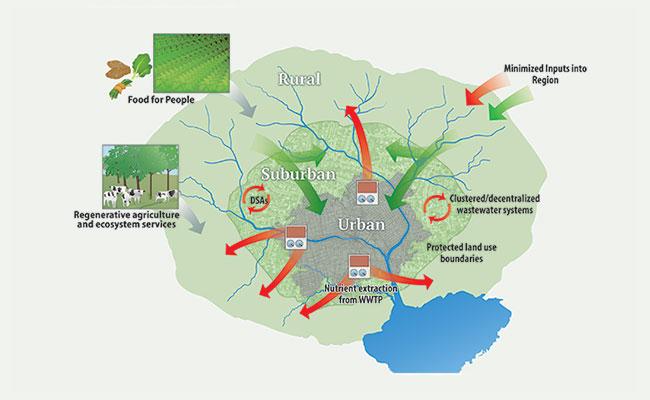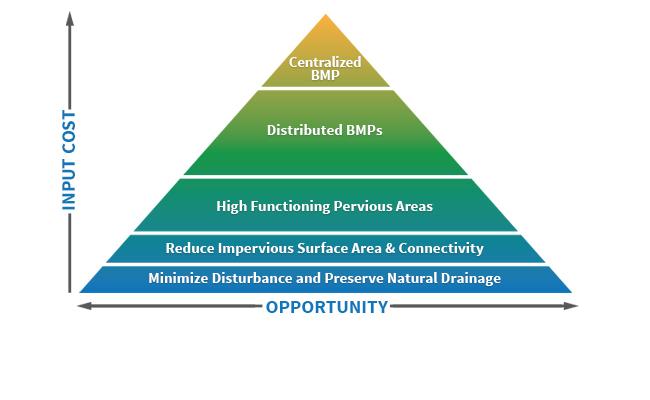Are We Going in the Right Direction: How Can You Tell?
Using holistic management with a One Water approach provides a simple means for moving toward community goals
Water Connections: Linking water management to sustainable and resilient commun…
Trevor Clements, Tetra Tech’s Mid Atlantic regional manager for Integrated Water Management, discusses how using holistic management principles and practices within a One Water approach can help communities integrate their water management with other community objectives and obtain greater public support by demonstrating how decisions benefit the community’s economy, quality of life, and environment. All opinions expressed in this post are the author’s own.
Infrastructure investment is a hot topic this month with a Federal Infrastructure Package being contemplated by both the President and Congress. A significant portion of this funding could be made available for water and transportation infrastructure. Historically these investments have been contemplated in federal, state, county, and even local silos. Would collaboration between these sectors result in better investments? When infrastructure investment decisions involve millions of dollars, knowing that the decisions are providing the best value for the community is important. (See "Expanding the Vision for Funding Water Projects” for more on infrastructure spending.) But if we are not all experts, then how can we tell if good water management decisions are being made?
For the past several decades, many water management decisions have been made based on the best value for an individual sector, such as stormwater management. The average person may not see how this fits within the overall community needs and vision for a prosperous economy, high quality of life for citizens, and healthy environment for generations to come. Years later we may hear that the selection of an initial low-cost decision may not be providing the value that was originally envisioned related to energy use, water quality improvement, or community benefits. Since water is vital for almost every aspect of our lives, having means for community leaders and citizens to make sure water is protected and used wisely is critical for building more resilient communities.
For example, in North Carolina, efforts are underway to establish a collaborative framework that would help place decisions in the context of a community vision and a balanced triple bottom line. The effort arose from the state Department of Transportation’s Highway Stormwater Program manager, who was concerned that stormwater management retrofit projects prescribed by regulatory rule in North Carolina were not providing much benefit for the amount of taxpayer dollars being invested. Follow up resulted in the formation of a workgroup of diverse professionals representing public and private sectors and urban and rural regions to reimagine the approach for nutrient and water management in the state. The ideas generated from this effort are forming the basis for incentivizing management decisions and practices that are more holistic, provide more benefits to communities and the state, and therefore stand to achieve much greater public support and participation.
At the heart of the proposed alternative framework is a holistic management approach that helps collaborating partners and the public quickly see potential weak links in the economic, social, and environmental outcomes from proposed decisions or actions. The process—which integrates science and policy without making it overly complicated—helps everyone see whether the decision or action is moving the community in the direction it wants to go. The vetting process for decisions quickly determines whether an action makes good economic sense in the context of the self-defined broader community objectives, whether it helps with social issues the community may be struggling with, and whether the environment is being managed wisely if the action is implemented. This connection back to what people of the community support is critical for success, and the approach allows collaborative partners to quickly screen out options that are biased toward one point of view.
I am optimistic at the progress made in North Carolina in the past year. Initiatives in discussion include local food production on preserved farms implementing practices that improve soil health and water quality while improving the rural economy, along with innovative ways to recover and reuse stormwater and wastewater resources (i.e., One Water approaches). I look forward to providing periodic updates looking at whether North Carolina seems to be “going in the right direction” with its holistic approach.



